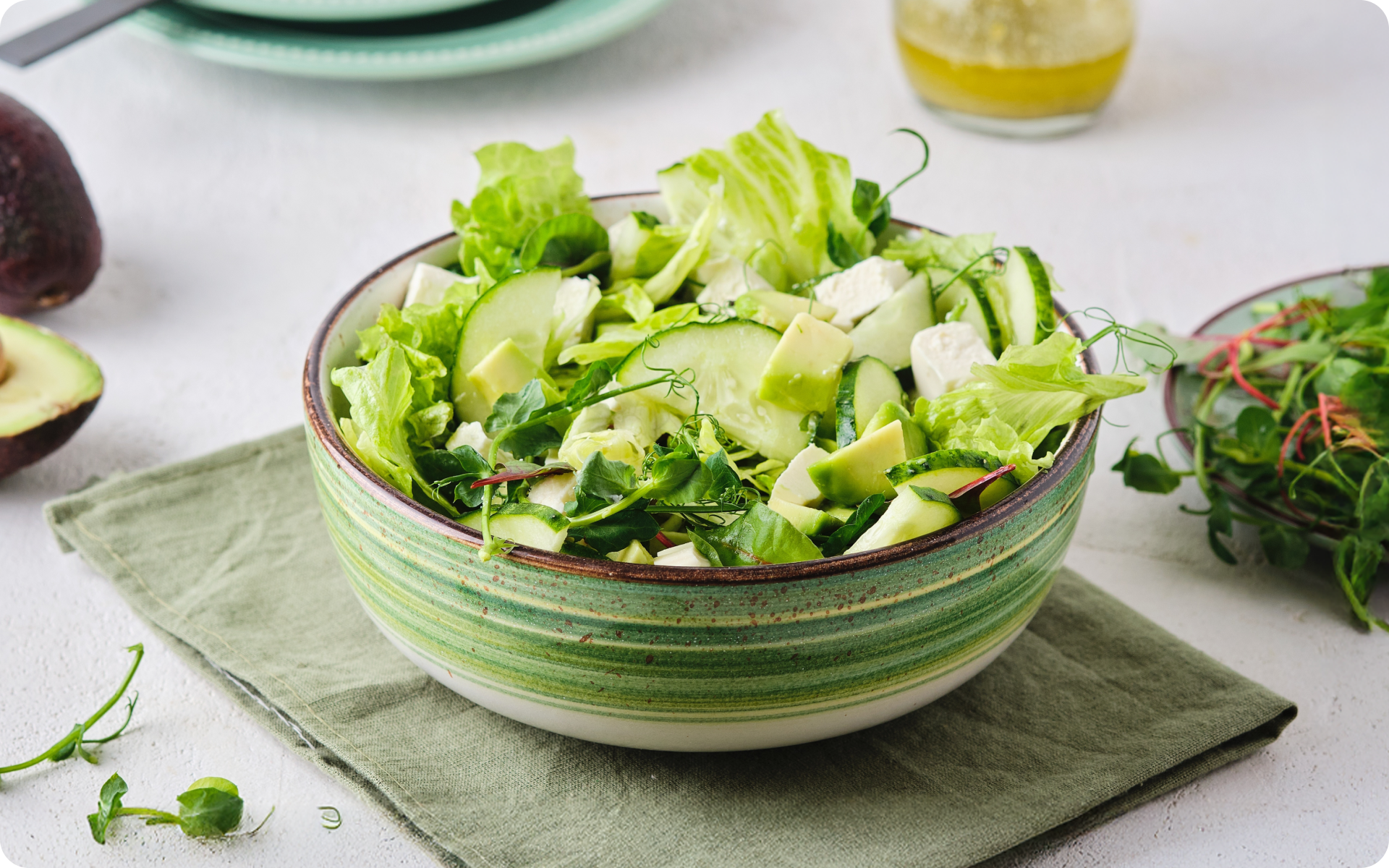Humans have been fasting in one way or another for thousands of years. While all forms of fasting restrict food intake. This type of fast involves consuming nothing but water for a period of time – no food, no broth, no juice, no vitamins, just water.
Although the idea of living this way may seem crazy to some, many people have tried water fasting. Several health benefits of water fasting have been suggested. But as with all things diet-based, water fasting is not without its dangers.
In this article, we look at the five-day water fast. Is going for five days on nothing but plain water worth it? Here is what you need to know before you embark on a five-day water fast.
How Long Can a Person Survive on Water?
Can you live on nothing but water for five days? Generally speaking, most healthy individuals can expect to survive for 5 days on water alone, but intense symptoms such as hunger pangs, weakness, dizziness, nausea, and headaches may be experienced.
How to Do a 5-Day Water Fast
There’s a lot of information out there about how to do a five-day fast, and it can be quite overwhelming. Essentially, all this information falls into three categories: the preparation stage, the fasting stage, and breaking the fast.
Reasons why BetterMe is a safe bet: a wide range of calorie-blasting workouts, finger-licking recipes, 24/7 support, challenges that’ll keep you on your best game, and that just scratches the surface! Start using our app and watch the magic happen.
How to Prepare for a 5-Day Water Fast
Before considering a water fast, consult your medical provider, especially if you’re taking prescription medications and/or have chronic medical conditions. Fasting isn’t recommended if you are under 18, elderly, pregnant, have diabetes, kidney problems, cancer, a history of eating disorders, and a long list of other medical problems. Your medical provider can help assess your personal risks and potential benefits, provide medical supervision during your fast, and help ensure your body is ready for a fast (8). Consider the timing of your fast: it may not be best to attempt a water fast while doing intense physical training or during a time when intense concentration and energy are needed.
Step 1 – Slowly Cut Back on Food
One way to help prepare the body for a water-only fast is to slowly cut back on food. If you normally eat three meals per day, you could start by cutting down one meal each week so that in six weeks, you will reduce it to just one meal per day. This gradual reduction makes the transition easier and may reduce discomfort during the early stages of the fast.
This slow elimination of calories allows the body time to become used to functioning with less fuel and stores up more energy in the muscles and liver, which will be your main energy source during this type of fast.
Another thing you can do is drink more water during the week before the fast. Remaining hydrated at all times may help control hunger pangs and avoid headaches or lightheadedness during the first few days (16). It may be wise to continue your normal vitamin/mineral supplement regime as you prepare for your fast.
Step 2 – Survive During the Fast
Now that your body is prepared for the fast, it’s time to actually start the five-day water fast. The first two days of a fast are generally the hardest, so try to stick to your usual routine and wait for these feelings to pass.
By day two or three, you will probably be feeling a certain amount of fatigue, headaches, and muscle weakness. It’s important to listen to your body and rest when you need to.
During these days, instead of thinking about food, you should focus on staying positive. Try preparing yourself mentally for this change in lifestyle by reminding yourself of the potential benefits of the fast.
Read more: Green Tea Intermittent Fasting: Benefits and Side Effects
How to Break a 5-Day Water Fast
It’s important to break a long-term water-only fast slowly. Doing it any other way will put you at risk of refeeding syndrome – a condition that can be fatal (14).
To break a five-day fast, you should start with a bone broth, soup, and/or fruit/vegetable juices. Then you can gradually start adding foods back into your diet, starting with fresh or steamed fruits and vegetables and increasing the calorie content of each meal over the next few days to
Breaking a fast should be done as slowly as possible and with the utmost care.
Stick to small but frequent meals and snacks for two weeks. If at any time you start to feel sick or faint during this process, stop eating until you feel better and consult a doctor
What Are the Benefits of a 5-Day Water Fast?
Research has found there to be several five-day water fast benefits, including (6):
Weight Loss
Most people who try this fast lose up to 10 pounds or more in just one week of drinking nothing but water. This is expected, as a water fast involves calorie restriction that has been proven to result in weight loss (2).
However, the weight you lose may come from water, carbs, or worse – muscle. We’ll look at why five-day water fast weight loss can be problematic in the dangers section of this article.
May Promote Autophagy
Autophagy is the process through which your body rids itself of dead or damaged cells through a recycling process. It has been studied in animal models and clinical trials and appears to slow down with age.
Although autophagy occurs naturally even if you are eating normally, it seems to be more prevalent when food intake is limited by as much as 30%. Some studies have shown that water fasting can help promote autophagy (6).
Autophagy is beneficial for preventing cancer, Alzheimer’s, and heart disease. Furthermore, this process may help extend a person’s life span.
May Improve Insulin and Leptin Sensitivity
Leptin is a hormone that tells your body to stop eating, and insulin is what helps the glucose get into your cells during fasting (12). The idea behind water fasting is that you are tricking the body into burning fat stores as there isn’t any sugar available for it to use as fuel.
This will result in your body being more sensitive to leptin and insulin. Sensitivity to insulin means your body is more efficient at reducing its blood sugar levels. At the same time, sensitivity to leptin could help your body process hunger signals more efficiently, which may lower your risk of obesity.
May Lower Blood Pressure
Studies have shown that water fasting can lower blood pressure in people who suffer from high blood pressure (hypertension) (11). Most studies have focused on long fasts of over 10 days.
BetterMe app will provide you with a host of fat-frying fitness routines that’ll scare the extra pounds away and turn your body into a masterpiece! Get your life moving in the right direction with BetterMe!
What Are the Dangers of a 5-Day Water Fast?
There are several risks associated with an extended water fast, including:
Loss of Muscle Mass
Before you get excited about your five-day water fast results, there is something you should know. Not all weight loss is good, particularly when you go on a water fast.
In the absence of food, your body will look for energy and turn to your muscles. Losing lean muscle mass lowers your metabolism and makes weight regain more likely, even after you have finished fasting.
Poor Concentration Levels and Poor Memory
Your mental performance – particularly attention span and memory – will decrease significantly while you’re doing a water fast. This is probably due to decreased glucose levels in the blood (7).
Dehydration and Orthostatic Hypotension
The symptoms of dehydration can be very unpleasant, including weakness, dizziness, lightheadedness, and nausea. It’s important to drink water during a water fast to avoid experiencing these unpleasant symptoms.
As 20-30 percent of your water intake comes from food, you’ll need to compensate for this with more water (3).
Orthostatic hypotension is a decrease in blood pressure that presents as dizziness when you suddenly stand up. It is common when fasting and puts you at risk of fainting (1).
Danger of Medical Complications
People with certain conditions can experience drastic disturbances in their body’s acid/base balance when they fast for an extended period of time on just water (15).
People with medical conditions such as diabetes, kidney disease, hypothyroidism, chronic infections, and ulcers should avoid water fasting altogether.
If you are taking any medications or have an ongoing health problem that requires medication, you should speak to your healthcare provider before you attempt a long-duration fast.
Read more: Intermittent Fasting and Running: A Winning Combination or a Terrible Mistake?
FAQs
How much weight will I lose on a 5-day water fast?
On a five-day water fast, you may lose anything between 5 and 10 pounds. However, this weight loss is not sustainable and is mostly water weight. Once you resume your normal eating habits, you may regain the lost weight (4). This depends on your current weight and metabolism.
The initial loss will mostly be water weight and some stored glycogen. However, you should remember that the primary goal of a five-day water fast isn’t weight loss but the potential health benefits such as improved insulin sensitivity and autophagy (17).
The purpose of a water fast should not be solely for weight loss. It should be done with the intention of detoxifying your body and improving your overall health (1).
Is it OK to fast for 5 days?
It’s okay to fast for five days under medical supervision. However, it may not be suitable for everyone, particularly those with medical conditions, pregnant women, or people under the age of 18. Always consult your healthcare provider before you start a five-day water fast.
What should you eat after a 5-day water fast?
After your five-day water fast, you should reintroduce food slowly. Start with light foods such as broth or cooked vegetables. Gradually add proteins and fats over the next few days. This approach will help your digestive system acclimatize and prevent gastrointestinal distress (14).
Can you exercise on a 5-day fast?
Exercising during a five-day water fast should be light to moderate at most, as your body won’t be receiving its usual fuel sources. Activities such as walking or light yoga can be beneficial. It’s best to avoid high-intensity workouts to prevent muscle loss.
While on a five-day water fast with exercise, you must pay attention to your body’s cues and stop if you feel lightheaded, dizzy, or weak. Hydrating with water is crucial at this time.
Is a 5-day water-only fast safe?
A five-day water fast can be safe if it is done correctly and under medical supervision. However, it may not be suitable for everyone. Dehydration, electrolyte imbalances, and low blood sugar levels are potential risks that are associated with extended water fasting (7). It’s advisable to pay attention to your body’s cues and stop the fast immediately if you experience any adverse effects.
The Bottom Line
Water fasting for five days is not a walk in the park. There are many risks and side effects that are associated with water fasting, and you should be careful before you consider it as an option.
However, it can still be useful for autophagy and improving insulin sensitivity, among other benefits. If you are curious about doing a five-day water fast to lose weight or improve your health, you should consult a doctor first and put some thought into it before deciding if it is right for you.
DISCLAIMER:
This article is intended for general informational purposes only and does not serve to address individual circumstances. It is not a substitute for professional advice or help and should not be relied on for making any kind of decision-making. Any action taken as a direct or indirect result of the information in this article is entirely at your own risk and is your sole responsibility.
BetterMe, its content staff, and its medical advisors accept no responsibility for inaccuracies, errors, misstatements, inconsistencies, or omissions and specifically disclaim any liability, loss or risk, personal, professional or otherwise, which may be incurred as a consequence, directly or indirectly, of the use and/or application of any content.
You should always seek the advice of your physician or other qualified health provider with any questions you may have regarding a medical condition or your specific situation. Never disregard professional medical advice or delay seeking it because of BetterMe content. If you suspect or think you may have a medical emergency, call your doctor.
SOURCES
- Alan Goldhamer, dc: Water Fasting—The Clinical Effectiveness of Rebooting Your Body (2014, ncbi.nlm.nih.gov)
- Calorie Restriction and Fasting Diets: What Do We Know? (2018, nia.nih.gov)
- Contribution of Water from Food and Fluids to Total Water Intake: Analysis of a French and UK Population Surveys (2016, ncbi.nlm.nih.gov)
- Can You Gain Weight In One Day? 11 Reasons Why The Scale Says You Gained Weight Overnight (2023,womenshealthmag.com)
- Energy Metabolism – an overview (n.d., sciencedirect.com)
- Fasting: Molecular Mechanisms and Clinical Applications (2015, ncbi.nlm.nih.gov)
- Fasting: the history, pathophysiology and complications (1982, pubmed.ncbi.nlm.nih.gov)
- Fasting Therapy – an Expert Panel Update of the 2002 Consensus Guidelines (2013, krager.com)
- Glycogen Metabolism – Biochemistry – NCBI Bookshelf (2002, ncbi.nlm.nih.gov)
- Ketosis, ketogenic diet and food intake control: a complex relationship. Antonio Paoli et al. 2015 (2015, ncbi.nlm.nih.gov)
- Medically supervised water-only fasting in the treatment of hypertension (2001,pubmed.ncbi.nlm.nih.gov)
- Narrative Review: The Role of Leptin in Human Physiology: Emerging Clinical Applications (2011, ncbi.nlm.nih.gov)
- Public knowledge of dehydration and fluid intake practices: variation by participants’ characteristics (2018,.ncbi.nlm.nih.gov)
- Refeeding syndrome: what it is, and how to prevent and treat it (2008, ncbi.nlm.nih.gov)
- Renal excretion of uric acid during prolonged fasting (1976, pubmed.ncbi.nlm.nih.gov)
- Water, Hydration and Health (2010, ncbi.nlm.nih.gov)
- Water Fasting: Benefits and Dangers (2022,healthline.com)










